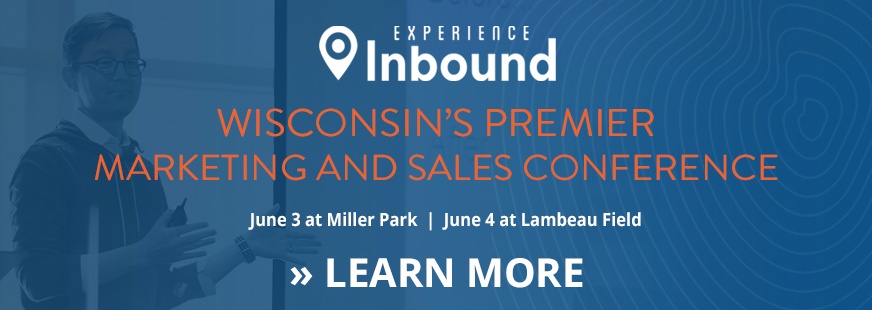 What is conversion rate optimization? And how can it help you grow your business?
What is conversion rate optimization? And how can it help you grow your business?
If anyone understands the science of conversion rates, it's Justin Rondeau. Being the Director of Marketing at DigitalMarketer, Rondeau has spent his entire career working on optimization campaigns and has run hundreds of tests for both B2B and ecommerce brands and has analyzed 3,000+ tests across virtually every industry.
Through his research he has learned that when trying to optimize a campaign or landing page there are only four fundamental things that actually impact conversions:
- The Offer
- The Articulation
- The Targeting
- The Design
In this interview we cover:
- What conversion rate optimization (CRO) is, and why it should be a part of your digital marketing strategy and workflow.
- What are the most critical pages to optimize on your website.
- The best common practices to use when you first launch.
- The Four Conversion Levers.
- Go-To resources to help you grow and learn more about CRO.
Like what you heard? Want to hear more? Attend Justin's session at Experience Inbound, a marketing and sales conference. Justin will be talking about The Four Conversion Levers & Nine Ways To Pull Them. Register today.
Video Transcription
Can you give us a little background who you are, what you do at DigitalMarketer?
Yes. So, well name: Justin Rondeau. I kind of have a background mainly in split testing and optimization work, trained and help launch some of the texting team, some of the Fortune 500 companies. Mainly, I'm obsessed with split testing for most of my career and trying to find ways to optimize different user experiences such that you could get more from what you're already investing in.
So that's where I got my starting point and then now at Digital Marketer, I've taken the reigns of the marketing department. So, kind of getting away from just testing, usability, kind of that world and actually just kind of taking what I know from that space and trying to apply across the marketing discipline as a whole.
That's pretty cool. That's exciting. You could see that with everything you do with marketing at Digital Marketer. I'm definitely a fan and we're part of the lab and it's amazing to see everything you've been doing across all the channels. So, it's impressive.
Yes, thank you. It takes a lot of people to do it right. Like they get to all those things man. I think it's easy especially with DM like from where we started and kind of like you have some of that forward-facing people there. It's like there's a lot of people doing that work.
Yes, I can see that. It's very similar to our friends at Hubspot. It's a huge organization that you kind of see them grow over the years and it's like you know they started out with a core team and they got bigger and bigger and bigger but it's still impressive to watch what you had to do.
So, follow-up question on that, your background is in split testing and obviously it's optimization and stuff like that. So, for some people that don’t really follow that too much. Can you give us a base understanding like what is it, what's conversion rate optimization, why is it important to the kind of general mix, you kind of eluded to that already?
Yes. I know a lot of people in this space they're a bit picky even the terminology conversion rate optimization. Because they believe that it if you are just focusing on the conversion rate, that's like the last point issue at, it's mainly looking at improving the experience and really, it's about improving clarity, to be quite honest. The traditional definition and kind of concept of conversion rate optimization is kind of improving a landing page or site such that people are going to be taking the intended action. And so, it's not a matter of like, it's nothing to do with like more acquisition or paid media or SEO or anything like that. It is purely about making changes across the board to increase the desired user action. That's kind of like the short of it.
Yes that makes sense. It takes away from thinking like it's just about campaigns. At the very least, if you look at your website and with you guys with the amount of client that you probably work with and have consulted with. There’s probably have a handful of pages or things that you know immediately once you go and get somebody's website you know like 'Let's look at these four things right, what would some of those critical pages that you see that you kind of start with?
Yes, I mean since I even started training, the first areas I like to look at, I like to look at the money pages, essentially, so whether it's an e-com site or like a lead gen site, really looking at those money pages where the converting action. So, where the short-term goal page or the goal of the immediate action on that page is as close to the long-term goal of the campaign or the overall plan for the site. So that will end up in places like shopping carts, landing pages from lead gen form, demo pages and those types of things for different types of companies there.
Those are kind of the hardest pages to work on though because of all the limitations that can happen there. Some people may just have a shopify store and then we'll do a whole like a lot. So, I generally start then I move backwards. So, if I can't do much there, I check the analytics “Is the conversion rate acceptable?” And if it is you move on to somewhere else. But product pages are like mid funnel pages, I've been finding it to be a lot of fun to work on especially if you're kind of outside inter campaigns because you're going to get enough traffic or converting actions, traffic and then subsequent converting actions to actually get statistically significant data where you don’t have to worry about…you can use the kind of the micro transaction or micro conversion indicators of like add to carts or click to the next page and you can use those to see if there's any consistency between the checkout process or your deeper funnel conversions. So, if there's a level of correlation there then you got to a point and say, "you know, I maybe a low traffic site and I'm only getting this many conversions like sales during this testing period." But if your micro conversions are in line with that then you actually probably make a better, you'll be able to make a better decision at that point.
Sure. That makes sense. Okay, so a lot of people within our audience are maybe more B2B, maybe manufactures and stuff like that, Google might be starting a very basis of just trying to start driving traffic. Is there a benchmark that you can recommend of the amount of traffic that they should be getting before you start on even looking at this type of testing?
I try to avoid just looking at traffic because the question I get a lot is how much traffic do you need to run to have a statistically significant test. It's not a matter of the amount of traffic, see the amount of converting activities, that what's really important there. So, I had one landing page that's converting around 40% and such that converting a high of a rate, I could run a shorter test, like a short timeline because I was getting to that like 100, 100, and 50 converting actions above the line very very quickly. I want to test to a 7-day, to run it up to 7 days completed week regardless but I've had fewer visitors. Actually, I was at an event and they actually got called me out and say it looks like you don’t have big enough sample site visits and I said “No you're absolutely wrong!” I have over 300 converting activities on both variations, I'm totally fine with how I'm going to pull this thing.
But if you're looking at where to start, I don’t get into the world of split testing or split testing variants until later on. It’s really kind of a last thing to do. You want to have things in mind…it takes a lot of resources to pull off and I think if you're just getting started driving traffic, you want to make sure that you have your like have your stuff dialed in, right? So, you're going to be focusing more on getting kind of the standard basics out. I'm one of the few I think…they start to come this way on optimization space and I think I have my own conspiracy theory about that but I am one of the few people that's always been saying like "No that practices are best for a reason because they're common and what's common is what's expected and what's expected converts.
Interesting. Yes. That's great and it kind of alluded to my next question talking about best practices or kind of practices in general. So, going back to timing of how long should you do a test or what is that threshold of getting those actions, those conversions and not worrying about traffic. So, is there anything else that you could kind of typically talk to your team about? Like "Hey it doesn’t matter about the traffic. We just know we want to set up this core things."
Yes there's a few things where I think it's when we're launching pages. We know standard controls like we want to put on page for their purchase site, like for our conference that happened last month traffic and conversion. Whether we were selling tickets or livestream, we had this thing that was popping up and said “so and so just bought this ticket” like there's certain things that we know how to add on to the site or add on each time for new controls. So, we're constantly trying to one: we want to improve our controls but like when we have a system in place for like okay this landing page needs to have 5 sets of bullet points on this one, it needs a product shot on this side, you need to go like a click a button to open a model as well as having an anchor at one of the anchor form at the bottom, there's a lot of things that went from testing really--Okay these are now our standards. And we start seeing a degenerative effect and you start seeing it go downhill, that’s when you start looking at things again. It breaks down to, really what I’ll be talking about at the event, is the kind of four conversion levers and it breaks down to like what those things are? When you start seeing kind of like a diminishing return on your campaign.
Okay perfect! And that's where's I'm going next as well is those four fundamental things are the offer, the articulation, the targeting and the design. Right?
Yes.
Okay so those things. Could we just walk through each of those and is there a low hanging thing that someone could change that we could talk through, maybe just pick two of them? Like the offer something like that.
It's always offer and articulation.
Okay alright.
Nearly always those two. Because offer a lot of people in…like in manufacturing and those types of things too. It gets tough really like “Oh! Is this offer good enough or is it appealing? What am I doing?” An example for us is that we had a business that was in manufacturing and they just did water filters, industrial sized water filters. It's going to be hard to make like a sexy offer with, right? And all we did was, we had all these other things that their competition was doing and we got curious and started calling our customers and asking hey what's one thing that you wish you could see like no one else is showing you and they just wanted to see prices right off the bat. People want to get on the phone with them. So, what we did is we created a lead gen offer and what we do is we would send them the price catalog. Here we go! And just done. And that was an offer that they wanted. It fits their needs, it was exactly what they are able to consume and it's rapidly consumable.
So, thinking about those types of what you're offering and angle by which you're doing it is going to be huge. One of the best areas for you to figure that out is talking to your customers or talking to your support staff or sales team. Support's staff's going to tell you what's really broken because those people do not pull punches when they call. And your sales team is going to tell you what gets them to buy.
That makes sense and that's kind of what we do back when we do personas even and just interviewing people to think about blog content and everything else, just do the interviews right? Do those customer interviews. And then how does that lead into obviously when people are talking and using their own language and stuff like that, kind of how you take that and how you put that in articulation phase as well. Are you thinking about the design, the imagery?
Articulation is more or less...you could have the best offer. Let's say if we have that filer for example, like this is the best offer for our audience. Let's say we were not articulating it the way that they understand. Or it was all the way at the bottom of the page and like they had to get there.
So, it needs to be readily seen and understandable. And so, one of the things, there’s a tool I use for this, it's called the 5-second test at usability hub. And this will help you both with your offer and articulation where what it will do it will show you a product, a landing page, a home page and anything. Count down 5,4,3,2,1…gone. Then it asks you a question about it. There's examples that I'm going to give out at the event that we did that for the Digital Marketer's site. And that was interesting. You can use that for live sites, mock ups, kind of new plans. That's going to tell you if your offer is on pace and if your articulation is on pace. I think with the last one, you ask a simple question for articulation like “What did you just see?” And then you ask like “Do you like it?” Or “Would you take that action?” So, it's very much you're going for do you understand, did it convinced you? And if you can't do that in 5 seconds then you lose.
That's interesting! So that's a great resource for people to use. Obviously, it's a tier model, how many audience members, like it's people that are doing that right? So, concerning audience, is there a threshold you typically want to get feedback from? Like a hundred people?
Probably a hundred. I had a rant the other day on LinkedIn, like the kind of it's over intellectualization of marketing where I've been seeing a lot of people that are like…they're not status stations, I'm not a status stations… I don’t pretend to be one. Like I know my numbers enough, I know what works and also I run a business and you have to be pragmatic like a lot of people think that these crazy research institute is like if we are so risk of verse, then we're always going to be coming in second because someone is going to take that jump and take that risk because if you know at least 70% of the way, that's something the way you wanted to, you grab that because split testing and optimization, all it is…there's 2 ways I look at split testing and optimization. One we're looking for outliers within our own industry. Because you kind of have the benchmark conversion rates and those types of things. We're trying to find the outliers. That's what we’re trying to get to. And then on top of that, it's all a matter of risk and reward for these things so it's kind of how much time are you going to spend doing the kind of the exploration versus how much are you going to exploit those learnings. And they take each other's time, it's a sliding scale. So, the longer the exploration period, the shorter the exploitation period but the less risk there. So, it's all about gaming that figuring out where can you make those calls.
Yes interesting. I did see that post actually. It's totally true. The data's there for everybody to look at and sometimes it's so overwhelming and so you can get so focused on things and a lot of people don’t look at that common sense like just do some tests. I’d rather look at the data then walk down the hall and say like "Hey do you see something weird about this?" So, part of our process internally is like how do we make sure there's extra people internally that there's checkbox like 'Hey do they like this, do they do this before we get it outside in the world?" So that's interesting.
From a resource standpoint like DigitalMarketer obviously, you guys have amazing resources. All of the classes and stuff. You have a class on optimization, right? What else do you use or what resource like for blogs, just to kind of learn more about thing?
Prep courses at Conversion Exomi, they are like a direct competitor to us now but whatever, they're good. I like them. I always screw up his new site but Chris Mercer, he's really really good in terms of analytics and tag manager and those types of things. It's either measurement marketer or measurement marketing, I actually had introduced them in an event. He does a phenomenal job. He's also kind of in the Austin area. He's a guy I go to when I'm stuck. That's the guy I'm going to talk to about.
We'll make sure we follow him and start sharing those links and give them love. Is there any, obviously there's tons of tools now from a digital standpoint, anything that you use free or paid that just kind of part of your core toolset?
Yes. ChartMogul. That is great for measuring any sort of subscription sales. So, it connects directly with Stripe and other things as an API setup. That thing is huge because it's going to start telling you a lot of information that you have to dig a lot of times to get. That one is a big deal. Other tools I use, I have my testing tool like VWO, they're all the same pick anything you want. Tag manager, that's super important. We have obviously like TruConversions and The Hot Jars of the world out there that's for behavior analytics, type stuff. Landing page builders so I use Instapage, Unbounce is good as well. They are on our resources page.
That's perfect. That's exactly what I was looking for. Google tag manager, like dive into a little more about that. Because it seems everybody's talking about tag manager nowadays.
Tag manager it takes out all the issues you have with slow down from having to get DEV to put things on your website. You just have to put the tag manager code on there and you go "Oh I want to try out this new sas product because everything has a standard script that you throw on your site, give it a try. I'm pretty sure, even sas companies would rather have people use tag manager because it's easier, lower barrier entry like getting the product to their site and once they get that code, it's going to be… you'll get a much higher percentage of keeping that user.
Also, it's a great way to push in different types of events and things like that. One thing we do is we do all of our e-contracting through tag manager that pushes to Google Analytics. It's overall just you know, a great way to make sure that you have everything in order especially in running a lead dev team.
That made sense. You mentioned True Conversion and Hot Jar as well. When you implement one of those tools, is there anything that you automatically go to as a first thing you set up? So, you obviously do a number of different things and both of those.
Yes. If I don’t have an idea on how funnels are performing, I'd setup a funnel tool immediately just to see where the drop off points are between things. But if generally when you're walking in to those, you generally have an idea about how your funnels are performing. So, from there, I'd do two things. If there's a form submit on the page, I'll setup a form analysis like a form-filled analysis and I'd also setup a heat map as well. With heat maps and those types of things, you're just going to get average user data across the board. You'll get also those with both, but with Tree Conversion, and full disclosure Tree Conversion is a DigitalMarketing product. When you're using that, you can actually re-draw your heat maps over your live site based on different inputs and those types of things like “Oh I only want to see people from this campaign.” And you can start seeing that. You get out of that pure average data but then really what happens is that if you don’t get the data story you need from a heat map, which is for everybody's not familiar with heat maps, those are just more or less visualization of clicks on the page versus having to go through a long spreadsheet of clicks.
If you're in an agency world, I've seen so many people's clients just lose their minds when they see this stuff. They're like "Oh my god!" That and session recordings, session recordings blow their mind.
Yes. We get the same thing all of the time with session recording. It is creepy but it's amazing at the same time.
Yes, exactly and those are harder to gauge. It takes longer to get meaningful results. That's generally, if there's a form on the page, heat map in the form, if I don’t learn anything from the heat map itself, then I start recordings and I start digging into it because recordings do take a lot of time. There's lot of heavy liftings.
Yes. A follow-up question, I think the funnels help the recordings, right? Because you can segment out a certain recording that you want to get based on the actions that they're doing. But really, it's just hard work, right? You're just watching the recordings and try to find these consistencies between each of the users.
Yes exactly.
This is perfect. This is exactly what we were hoping to talk about and obviously we're looking forward to you coming to Experience Inbound in 2018 so June 5th in Milwaukee and June 6 in Lambeau Field. We’re pumped to have you. So, thank you!
Thanks! I'm excited to go to Lambeau. I mean the event's going to be great, Lambeau's also going to be really cool.
First and foremost, let's get over to Lambeau we'll tour and obviously have you speak as well. Awesome!
Great!
Before we go, is there a good place where people could connect with you online that you usually hangout mostly?
Yes. LinkedIn is where I hangout most of the time right now. I'm still on Twitter but I don’t do much there. I don't, it's terrible but LinkedIn I get to hangout more. If you find me there, you might get some more of those rants, pretty much all my posts are there at this point.
We'll take it. So yes, thanks and we look forward to seeing you in June. Thanks so much Justin!
Alright see you!





